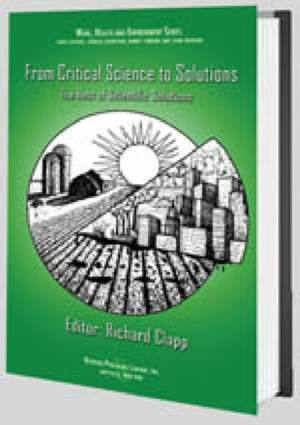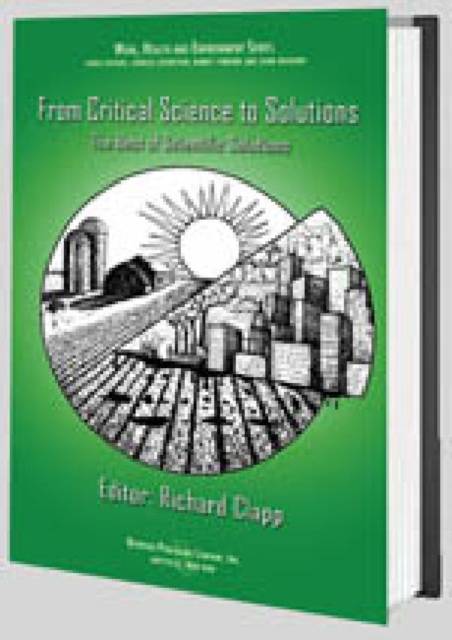
Door een staking bij bpost kan je online bestelling op dit moment iets langer onderweg zijn dan voorzien. Dringend iets nodig? Onze winkels ontvangen jou met open armen!
- Afhalen na 1 uur in een winkel met voorraad
- Gratis thuislevering in België vanaf € 30
- Ruim aanbod met 7 miljoen producten
Door een staking bij bpost kan je online bestelling op dit moment iets langer onderweg zijn dan voorzien. Dringend iets nodig? Onze winkels ontvangen jou met open armen!
- Afhalen na 1 uur in een winkel met voorraad
- Gratis thuislevering in België vanaf € 30
- Ruim aanbod met 7 miljoen producten
Zoeken
€ 195,95
+ 391 punten
Uitvoering
Omschrijving
First Published in 2017. In this volume, the editor collected articles that primarily appeared in the "Scientific Solutions" section of New Solutions, A Journal of Environmental and Occupational Health Policy. The articles in the book are grouped into three general categories, starting with Critical Science. These articles are primarily critiques of "how science is done" or how science is incorporated into public health policy in the United States and elsewhere. The second category is what I have called Precautionary Science. These articles, such as the ones by Dement on asbestos and Solomon, and colleagues on the risks of manganese, essentially call for precautionary regulations to reduce exposures where there is substantial but, in the eyes of some, less than definitive scientific knowledge. The final category is Solutions Science. In some ways, this represents the current stage of precautionary science, where we have begun to look at larger societal issues and have moved beyond traditional scientific approaches and critiques.
Specificaties
Betrokkenen
- Auteur(s):
- Uitgeverij:
Inhoud
- Aantal bladzijden:
- 226
- Taal:
- Engels
- Reeks:
Eigenschappen
- Productcode (EAN):
- 9780895034045
- Verschijningsdatum:
- 15/05/2012
- Uitvoering:
- Hardcover
- Formaat:
- Genaaid
- Afmetingen:
- 152 mm x 229 mm
- Gewicht:
- 99 g

Alleen bij Standaard Boekhandel
+ 391 punten op je klantenkaart van Standaard Boekhandel
Beoordelingen
We publiceren alleen reviews die voldoen aan de voorwaarden voor reviews. Bekijk onze voorwaarden voor reviews.











